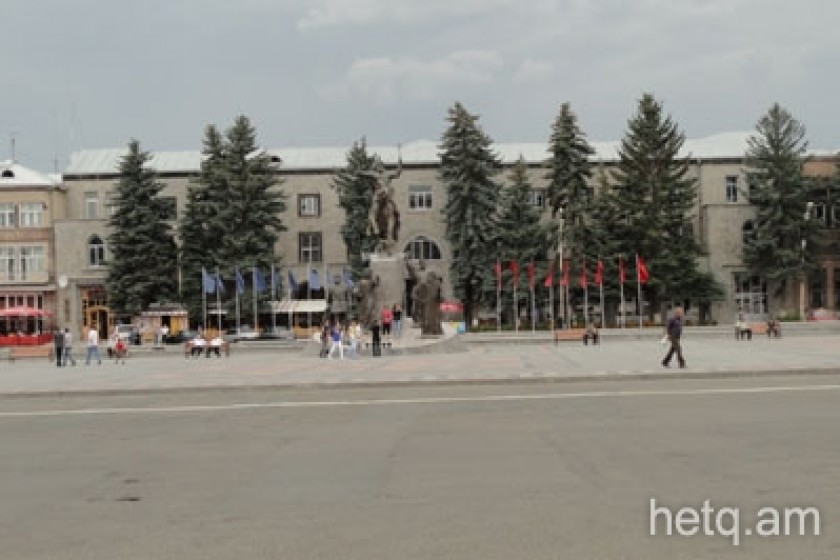
Armenian Migration: Does the BBC Know Something our Officials Do Not?
A BBC reporter visiting Armenia wrote an article of his impressions entitled "Armenia Migration: The villages of women left behind". Hetq reprinted the article in its August 11th edition.
The first paragraph is prophetic:
In many rural areas of the former Soviet Union, poverty and unemployment are forcing people to leave. But in Armenia it is men who are going, leaving whole villages almost entirely populated by women.
The BBC reporter had visited the village of Dzoragyugh, located in the northern portion of Aragatzotn Marz.
I wanted to travel to Shirak Marz to the north to see what the migration situation was like there.
My first stop was the city of Gyumri, the regional center. I made a beeline to one of the numerous travel agencies selling airline tickets where an old girlfriend of mine was working.
- So how many tickets have you sold today? How's business?
- Can't you see what's going on? Everyone is opening a ticket agency. There's no work and no way to make a decent living. People save some money and buy a ticket to Russia. Why stay here? For what?
When I asked my friend if she was pleased with her job, she answered, "Hey, if I don't sell them tickets somebody else surely will."
From there I made my way to the center of town called Freedom Square. There were three elderly men panhandlers in the courtyard of St. Astvatsatsin Church (also called "Yot Verk", or "Seven Wounds") divvying up their take from members of the various marriage ceremonies inside.
They show up like clockwork on Saturdays and Sundays – it's their place of business.
But you won't find beggars anywhere else in Gyumri. Even their numbers have gone down.
"If there wasn't people coming in from the villages then town would be dead," said a nearby shop keeper. "We close up at 7pm but after 6 you don't see anyone on the streets. In fact, the only sign that people actually passed this way is the garbage on the streets."
Alongside Victory Avenue, there were street vendors selling various fruits and veggies. I noticed a thick-set woman with a notebook in her hand. She seemed to be compiling some type of list. I moved in a little closer to see what she was up to.
- Hey girl. Are you telling me you haven't sold 500 AMD worth of stuff today? Are you telling me you can't pay?
- Dear Gayan, look at this full box of tomatoes. I haven't sold anything.
Turns out that Gayan was making her rounds amongst the vendors collecting the money they pay for their "spots" on the pavement.
A neighboring vendor saw what was happening and let out a sigh.
"You know, they can really fix up this town but I'm afraid they'll be no one around to appreciate it. People are going hungry and just think about leaving. Yeah, those with money will build stores and put a 'For Rent' sign in the window, but who's going to rent?"
Early that morning I had telephoned Rafik Potinyan, who heads the Social Security Department at the Shirak Regional Authority, for an interview. I wanted to ask him about the economic situation and how it's affected the migration numbers.
"You know Yeranuhi, we really don't have a good fix on the migration issue. You can try Mr. Yeganyan. His office has some more precise data. I couldn't tell you how many are leaving on a temporary basis and how many have gone for good. Let's wait for the next census."
It would seem that local and regional officials have their heads in the sand, like ostriches, when it comes to such crucial matters. Maybe they just don't want to face reality.
Or maybe, like most mid-level functionaries, they are just there to convey the official statistics provided by their higher-ups. They really aren't comfortable talking off the cuff.
Even Mr. Yeganyan, higher up on the ladder, assured me that the "exodus" everyone was so alarmed about in fact doesn't exist.
Funny, our officials say nothing of the kind exists while the BBC reports otherwise.
Who should we believe?
 Videos
Videos Photos
Photos




Comments (5)
Write a comment